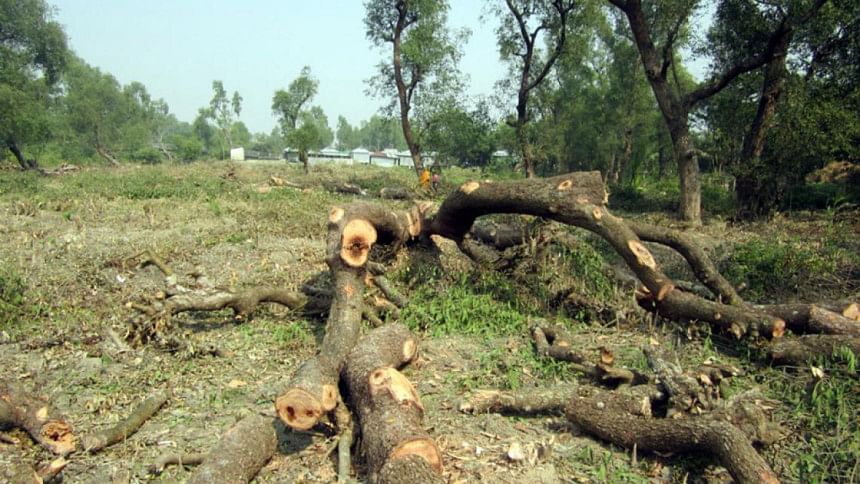Save the trees

We are astonished that the ministry of environment and forest has itself initiated a proposal to cut down more than 3,000 trees in two reserve forests of the country. The purpose is to build a stadium in Chandpur union of Gazipur and a Petroleum Corporation project in Maheshkhali of Cox's Bazar district.
As it is, there has been gradual depletion of forest land in the country, and whereas ideally we should have 25 percent of land under forest cover we have less than 10 percent at the moment. And that too is being denuded by population pressure and the stress of urbanisation.
Admittedly, in a land-strapped country like Bangladesh, there will be a constant pressure of development on land, but one must weigh the long-term costs and benefits of a project on the environment and the people. There are certain natural endowments that cannot be regained or recreated in a short time—trees and forests being a few such precious things. It is little comfort that such projects are allowed on condition that the users shall plant double the number of trees they fell. Growing trees is not building a house. And the project, being located where it is inside a reserve forest, may cause long-term damage to the area and other associated harms that may not have been foreseen. This the administration should not lose sight of.
The yearly revenue and one-time compensation levied on the users are no recompense for the unmitigated harm the projects will inflict. Given the existing cabinet decision that bars felling of trees in reserve and natural forests, we would hope that alternative sites would be selected for the two projects.

 For all latest news, follow The Daily Star's Google News channel.
For all latest news, follow The Daily Star's Google News channel. 



Comments